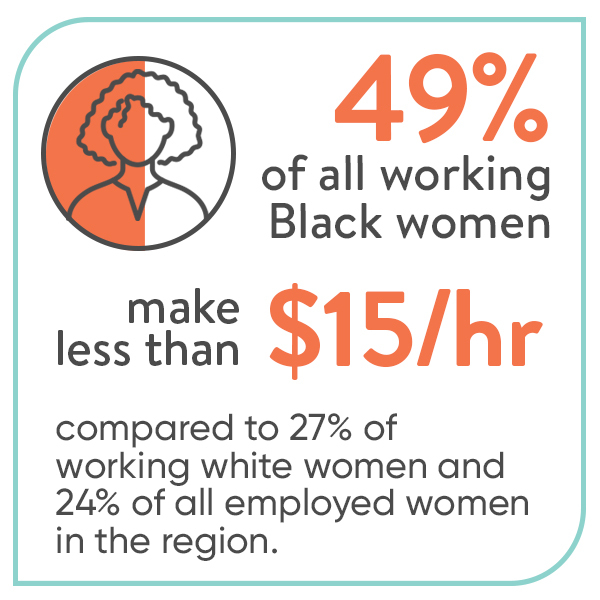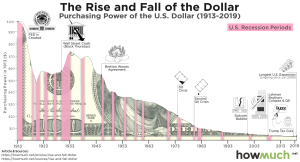Economic mobility for Black Americans has taken a promising turn, signaling a shift toward greater economic opportunity for those born into low-income families. Recent findings from Opportunity Insights highlight an encouraging trend: Black millennials are experiencing improved income outcomes compared to previous generations, with earnings for this group rising significantly. However, while the economic divide between impoverished Black and white families is narrowing, the widening gap of wealth among white Americans accentuates persistent issues of race and class gaps in our society. This analysis draws on extensive tax and Census data gathered over four decades, revealing intergenerational mobility patterns that challenge long-standing narratives. Understanding the nuanced dynamics of Black Americans’ income and the factors influencing these changes can offer critical insights into the path toward equitable economic opportunities for all.
The topic of economic advancement among African Americans highlights a crucial component of the broader conversation around income disparity in the United States. Recent research has illuminated new pathways for progress, focusing on the financial prospects for those from low-income backgrounds. In particular, the rising incomes of young Black adults offer a counter-narrative to historically entrenched barriers to prosperity. Moreover, the exploration of socioeconomic status reveals that while strides are being made, significant disparities linked to both race and economic class remain. This ongoing discourse surrounding financial equity and opportunity underscores the importance of fostering environments where future generations can thrive.
Understanding Economic Mobility for Black Americans
Economic mobility for Black Americans, particularly those born into low-income families, has seen noticeable improvement in recent years. A significant study conducted by Opportunity Insights revealed that Black millennials are earning more than their Black Gen X counterparts. The increase in average annual income from $19,420 for those born in 1978 to $21,030 for those born in 1992 is a crucial indicator of this upward trend. This change signifies a narrowing of the economic gaps that have long characterized race relations in the United States. Such developments are vital, as they reflect a broader movement towards addressing economic disparities that have historically marginalized Black communities.
Moreover, the study highlights how factors like geographic shifts and community conditions impact economic outcomes. Black Americans, especially those from the Southeast and Midwest, experienced remarkable increases in earning potential. As communities begin to nurture economic opportunities and provide better resources, young Black adults can break the cycle of poverty that has persisted for generations. This trend is encouraging and demonstrates that strategic investments in communities can yield significant rewards in terms of economic mobility.
Despite the positive shifts observed for Black Americans, the research underscores the persistent race and class gaps within the overall economic landscape. While the earnings disparity between low-income Black and white individuals has decreased, high-income white families have continued to flourish, further widening the divide between low- and high-income groups. The outcomes indicate that while some progress is being made for Black Americans, there is still a long journey ahead to achieve true economic equity. Reports show that the income gap between Black and white individuals who grew up in similar socioeconomic conditions remains significant, illustrating that economic mobility cannot be uniformly applied across racial lines.
The Impact of Intergenerational Mobility on Black Americans
Intergenerational mobility plays a crucial role in understanding the economic prospects of Black Americans. The term refers to changes in social status, income, and economic conditions from one generation to the next. Opportunity Insights’ recent study utilized historical tax and Census data to explore the dynamics behind upward mobility, particularly for Black families. The findings point to a fascinating shift where younger Black Americans are gaining access to improved economic opportunities compared to their predecessors. This trend illustrates the importance of various factors, such as community support and resources, in facilitating economic growth across generations.
The synaptic growth in intergenerational mobility has particular implications not just for individuals, but for families and communities as well. As families witness economic improvements, the likelihood becomes greater that they can provide their children with better educational and job opportunities. This upward mobility is essential for breaking the persistent cycle of poverty, with research indicating that neighborhoods with strong parental employment positively influence the overall socioeconomic outcomes of all children, irrespective of race. For Black Americans, this reflects a hopeful narrative of rising incomes paired with enhanced educational access.
However, while there are signs of progress, the study still reveals sobering realities. Notably, the historical context of slavery and structural inequality continues to shadow the mobility paths of Black families. Even with recent gains, the average income for Black Americans remains below that of their white counterparts, demonstrating the enduring effects of systemic barriers. It is therefore crucial for policymakers and community leaders to recognize these disparities and focus on creating equitable systems that promote economic opportunities for all, particularly for historically marginalized populations. Without undertaking meaningful structural changes, the goal of achieving true intergenerational mobility may remain elusive.
Exploring Race and Class Gaps in Economic Opportunity
The widening race and class gaps in economic opportunity have significant implications for social equity in America. Recent studies, including the work of Opportunity Insights, have consistently illustrated that while Black Americans are experiencing improvements in income and mobility, the socio-economic divide between races continues to reflect deep-rooted disparities. Wealth accumulation, education access, and quality employment are crucial factors that contribute to these disparities. As the study indicates, the upward mobility of low-income Black Americans is often contrasted starkly against the stagnation or decline of similarly situated white families, emphasizing a complex intersection of race and class dynamics that shape economic experiences across the nation.
To address these gaps effectively, a nuanced understanding of the socioeconomic factors at play is necessary. Policymakers should consider targeted interventions that not only uplift economically disadvantaged Black communities but that also acknowledge the broader structural barriers that white families encounter. Creating policies that focus on expanding access to quality education and equitable employment opportunities for everyone can foster an inclusive economic environment, thereby promoting greater social harmony. Ultimately, a holistic approach must be adopted to bridge the existing race and class gaps in economic success.
Furthermore, it is essential to recognize that the outcomes of these gaps are not solely about individual achievement; they also reflect systemic inequalities entrenched in American society. Addressing the race and class gaps necessitates a commitment to understanding the historical injustices—like redlining and employment discrimination—that have disproportionately affected Black Americans and their families. Collaborative efforts between government, businesses, and community organizations must focus on dismantling these barriers to create a level playing field. Without addressing the foundational causes of inequality, the goal of widening economic opportunities for all, including Black Americans, may face insurmountable challenges.
Opportunity Insights Study Findings and Their Implications
The recent findings by Opportunity Insights shed light on the evolving nature of economic opportunity within the United States, particularly as it pertains to Black Americans. This comprehensive study highlighted how young Black adults born in low-income families have seen gains in their economic trajectories, which contrasts with the experience of their white counterparts who have faced stagnation in earnings. Such results serve to emphasize the importance of longitudinal studies that assess not just income, but also the underlying factors affecting economic mobility. Analyzing data from past generations provides invaluable insights into how communities can foster greater economic success for future generations, establishing a roadmap for targeted interventions.
Moreover, the implications of these findings extend beyond immediate economic outcomes; they could influence broader societal paradigms regarding race and class in America. With research demonstrating the efficacy of community-driven initiatives in narrowing the economic gap, there is a clear mandate for stakeholders to invest in programs that bolster educational resources and employment opportunities for Black Americans. The study advocates for a shift in perception—a recognition that the health of any community directly correlates to the outcomes of its youth, regardless of race.
In light of these findings, it becomes increasingly clear that fostering economic mobility is not a zero-sum game. Instead, strengthening the economic prospects of Black Americans can have positive ripple effects throughout the economy. With more Black Americans achieving financial stability, the community can engage more effectively in the economy, further driving growth and innovation. This cohesive effort to enhance economic opportunities illustrates the interconnectedness of social equity and economic prosperity, and the need to champion shared growth as fundamental to a thriving society. As such, continued research and advocacy work are necessary to ensure that the gains made are not lost in the face of enduring systemic challenges.
The Role of Community in Economic Opportunities
The importance of community in shaping economic opportunities cannot be overstated, particularly for Black Americans navigating the complexities of income disparities. Recent research has shown that neighborhoods with high rates of employment among parents significantly impact the economic outcomes of all children within those communities, regardless of their racial background. This is particularly relevant for low-income families, where access to resources, networks, and positive role models can pave the way for better future prospects. Therefore, investing in community infrastructure and support systems is crucial for fostering environments where children can thrive economically.
For example, areas that prioritize education, mentorship programs, and job training initiatives can provide Black children with the essential tools they need to pursue successful careers. Community organizations and local governments must collaborate to activate these resources, ensuring that everyone can access the pathways to economic success. Furthermore, by enhancing collective efficacy within neighborhoods—defined as the shared belief in the community’s ability to succeed—residents can foster a more vibrant economic landscape, reducing disparities and enabling families to break free from cycles of poverty.
While addressing the entrenchment of economic disparities, it is essential to also focus on community resilience. The ability of Black Americans to forge stronger community ties can amplify their economic potential and serve as a buffer against external economic shocks. When neighborhoods are fortified with supportive networks, children perceive a sense of belonging which can enhance their educational outcomes and career aspirations. By actively promoting community engagement and partnerships, cities can create holistic support systems that uplift entire populations, reinforcing the importance of not just individual achievement but communal success as well. Long-term investments in community-driven initiatives can yield significant dividends, ensuring that future generations of Black Americans can achieve economic mobility in a more equitable landscape.
Bridging the Race and Class Divide for Economic Equity
Bridging the race and class divide in economic equity requires a comprehensive approach that focuses on dismantling systemic barriers and fostering inclusive opportunities. The findings from Opportunity Insights clarify that while positive strides have been made for Black Americans, significant work remains to overcome the entrenched disparities that have historically marginalized them. Collaborative efforts must involve dedicated stakeholders from various sectors, including government, businesses, and educational institutions, all working towards the common goal of improving economic prospects for marginalized communities. Recognizing that economic success is interlinked with social justice is essential in fostering a society that values equality.
To develop effective strategies for addressing these divides, it is crucial to employ an intersectional lens that considers the unique challenges faced by low-income Black families. By focusing on policies that promote access to quality education, affordable housing, and reliable employment opportunities, communities can create a more equitable landscape for future generations. Furthermore, engaging in dialogues with community members themselves can lead to grassroots solutions that resonate with those most affected by economic inequality.
Additionally, initiatives that promote economic equity must prioritize sustainability to ensure lasting impacts. This includes not just creating immediate job opportunities but also investing in long-term solutions that address the root causes of economic disparities. For example, community programs that integrate workforce development with financial literacy can empower individuals and families to make informed decisions about their economic futures. Ultimately, the challenge of bridging the race and class divide in economic equity rests on our collective willingness to act and foster a culture of collaboration that champions the potential of everyone in society, leaving no one behind.
Frequently Asked Questions
How does economic mobility for Black Americans compare to previous generations?
Recent research indicates that economic mobility for Black Americans, particularly those born into low-income families, has improved when compared to earlier generations. For instance, Black millennials born in the 1990s have demonstrated higher average earnings than their Gen X counterparts born in the late 1970s, signifying a favorable trend in economic opportunity for Black Americans.
What factors contribute to economic opportunities for Black Americans?
Factors contributing to enhanced economic opportunities for Black Americans include shifts in employment geography, increased community employment rates, and targeted policies aimed at reducing economic and racial disparities. Studies show that communities with higher adult employment rates have delivered better outcomes for Black youth, indicating the importance of supportive environments for economic mobility.
What is the significance of intergenerational mobility for Black families?
Intergenerational mobility refers to the changes in economic status from one generation to the next. For Black American families, the latest findings reveal a reduction in the racial earnings gap, indicating that younger generations may have improved chances of elevating their economic status compared to previous generations. This shift underscores the evolving landscape of economic mobility and opportunities available to Black Americans.
How do race and class gaps interact in the economic mobility of Black Americans?
The relationship between race and class gaps appears complex, with recent studies indicating that while race gaps in economic mobility for Black Americans are narrowing, class gaps continue to widen. This suggests that while Black Americans are making strides toward economic equality, growing disparities among different class strata highlight ongoing challenges related to economic opportunity.
What are Opportunity Insights’ findings concerning Black Americans’ income?
Opportunity Insights has found that Black Americans’ income prospects are improving, especially for those raised in lower-income families. The analysis indicates that Black millennials have higher average incomes at age 27 than their Gen X predecessors, demonstrating advancements in economic mobility for Black Americans in the current socio-economic climate.
What role do childhood communities play in the economic mobility of Black Americans?
Childhood communities play a critical role in the economic mobility of Black Americans. The research shows that children raised in neighborhoods with higher rates of adult employment tend to achieve better economic outcomes in adulthood. This highlights the importance of community support and access to resources in facilitating upward mobility for Black youth.
What do recent studies say about property and employment influences on economic mobility for Black Americans?
Recent studies indicate that declines in parental employment among lower-income groups, including Black Americans, affect long-term economic mobility. Communities with stable employment not only benefit Black youth but also enhance economic prospects for individuals of all races, emphasizing the interconnectedness of property, employment trends, and economic mobility.
How has the economic mobility of Black Americans changed in different regions of the U.S.?
Economic mobility for Black Americans has shown significant improvements in regions such as the Southeast and Midwest. For example, data reveals that poor Black children in areas like Kalamazoo, Michigan, experienced notable increases in their earnings as young adults compared to earlier generations, reflecting positive shifts in economic opportunities within these communities.
| Key Findings | Details |
|---|---|
| Improved Income for Black Americans | Black Americans born poor in the 1992 cohort averaged $21,030 at age 27, compared to $19,420 for those born in 1978. |
| Narrowing Racial Earnings Gap | The racial earnings gap for millennials shrank by 27%, down to $9,521 from $12,994 for Gen Xers. |
| Widening Class Gap | Income disparity between low- and high-income whites increased by 28% in the same period. |
| Regional Differences | Black Americans in the Southeast and Midwest saw the most significant improvements in income. |
| Impact of Community Employment | Children raised in neighborhoods with higher employment rates achieve better outcomes. |
| Historical Context | Previous studies linked the regions with high rates of slavery to lower mobility rates over generations. |
Summary
Economic mobility for Black Americans has seen a marked improvement in recent years, particularly for those born into low-income families. Recent research indicates that Black millennials are earning more and experiencing a narrowing of the racial earnings gap compared to previous generations. While improvements are evident, significant disparities still exist, particularly in the context of rising class gaps among white Americans. The findings suggest that factors such as community employment and regional economic conditions play a pivotal role in shaping these outcomes, underscoring the importance of addressing both racial and class inequalities in efforts to enhance economic opportunities.




